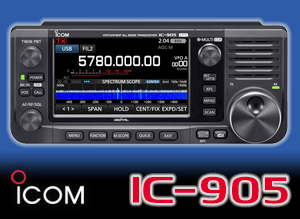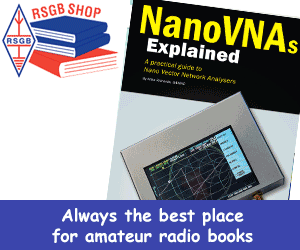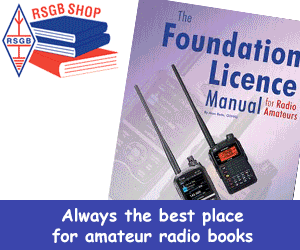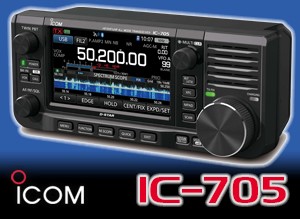RSGB Contest Club
Who are we and what do we do?
The Contest Club is for any RSGB members who are interested in taking part in amateur radio contests but is particularly aimed at those who are not already members of a radio club or group that encourages contesting.
Membership is open to all RSGB Members.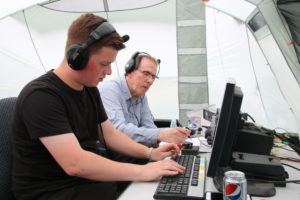
Contest Club members who are not members of another participating Affiliated Society are welcome to enter any of the relevant contest series as representatives of the Contest Club – which is in the General Category of clubs. To join the Contest Club, you do not need any previous experience of contesting and you will not be obliged to enter any of the Affiliated Society events on behalf of the club.
Historic RSGB Callsigns
The Contest Club is the custodian of five historic RSGB callsigns:
| G5WS | The First to Get Across: RSGB special callsign, 5WS, was used in the Third Transatlantic Tests, December 1922; 5WS was the first European amateur signal verified to have been heard in North America. |
| G6XX | RSGB callsign for special activities in the 1920s: activated in the Fourth Transatlantic Tests, December 1923; G6XX was heard extensively in North America. |
| G5AT | The RSGB club callsign for the 1920s: held by the Dubilier Condenser Company in the 1920s and which was active in the Fourth Transatlantic Tests, December 1923; 5AT was heard by many amateur receivers in North America. |
| G6ZZ | The RSGB Railway callsign: special callsign activated on Friday 5 July 1924 on the Scotch Express on its journey from London to Newcastle – the first experiment in operating an amateur radio station from a moving railway train. |
| G3DR | The RSGB Scottish Highlands Club callsign: used in the 1930s as GM3DR. |
The historic calls are now club callsigns held by the Contest Club; none of these callsigns is intended as a museum piece.
Members of the Contest Club who are full licensees may use these historic callsigns, or their regional variants, on behalf of RSGB, by prior arrangement; see “How to Join” below. Please consider how you or your radio club might use one of these callsigns.
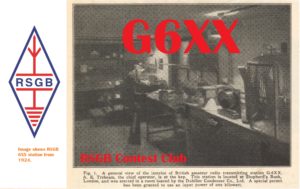
G6XX and its regional variants (GD6XX, GI6XX, GJ6XX, GM6XX, GU6XX, and GW6XX) are regularly used to represent the Society in International Contests and in RSGB contests, as is G3DR. In addition, these callsigns are often activated by Contest Club members as RSGB HQ stations in RSGB Contests and may attract bonus points for the contest entrants when detailed in the contest rules.
QSL details for both callsigns and their regional variants are available on QRZ.com. The logs are regularly uploaded to LoTW and Clublog.
The Centenary of the first contact between the UK and New Zealand
The 18th of October 1924 was the occasion of the first amateur radio contact between the United Kingdom and New Zealand. The contact was between 18-year old student Cecil Goyder G2SZ (1906-1980) operating from Mill Hill School in North West London and 28-year old Frank Bell Z4AA, at his sheep farm in Shag Valley, East Otago, on the South Island of New Zealand. This was the first trans-global contact – a huge milestone in the development of international radio communications.
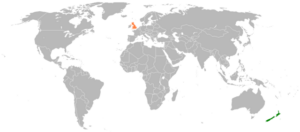
To mark the centenary, four special calls are being used:
- G2SZ, the callsign used by Cecil Goyder
- ZL4AA, reflecting the callsign used by Frank Bell
- GB2NZ, a UK special event call
- ZM100DX, a New Zealand special event call
A website dedicated to the centenary, www.gb2nz.com, gives the back-story and full details of when and where these special calls will be activated.
We also want to encourage general activity on the HF bands to celebrate the occasion, particularly on Friday 18 October, Saturday 19 October and Sunday 20 October 2024. This will include UK stations attempting to make QSOs with New Zealand and New Zealand stations similarly attempting to make contacts with the UK.
We expect significant international interest in the centenary – not just from the UK and New Zealand.
Please join in by activating one of the RSGB call signs for the centenary
In addition to the special calls, we plan to activate some of the historic calls held by RSGB (which were contemporaries of G2SZ in the 1920s) on these three days and are looking for RSGB members to volunteer to join in with this; see the link below for a full explanation of how you can take part.
| Activating an Historic RSGB Call Sign for the G2SZ/Z4AA Centenary |
Radio Marathons
G6XX, GM6XX, GI6XX and GW6XX were active from 1 June 2018 to 15 July 2018 representing England, Scotland, Northern Ireland and Wales in the FIFA World Cup Marathon, which was organised by the Union of Radio Amateur of Russia. Contest Club members, made a total of over 55,000 QSOs during the period using these four callsigns. This was an opportunity for many RSGB members to experience pile-up operation on the HF bands, some for the first time.
We are actively looking for new opportunities to engage RSGB members in radio marathon operation; the Contest Club provides a practical structure to enable special callsigns to be used by RSGB members.
Discussion Group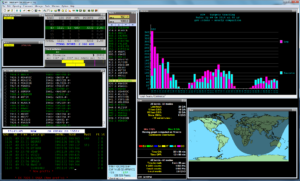
The Contest Club has an online discussion group which members are welcome to join. This is used to circulate news relating to RSGB and International Contests and to coordinate use of the historic callsigns that the club holds. Also this is a good forum to use for advice on any aspect of contesting.
RSGB Affiliation
The club is affiliated to the RSGB as well as being organised from within the RSGB contest committees. The Club committee consists of the Chair of the RSGB HF Contest Committee, the Chair of the RSGB VHF Contest Committee and the Chair of the RSGB Contest Support Committee.
Membership is open to any licenced RSGB Member and there are no joining fees or subscriptions.
How to Join the RSGB Contest Club
If you are an RSGB member and would like to join the RSGB Contest Club please send an email to ContestClub@rsgbcc.org with the following:
- Full Name
- Call Sign
- Email address
- RSGB membership number
- RSGB region
Please address any queries or requests to use the club callsigns to the same address.

